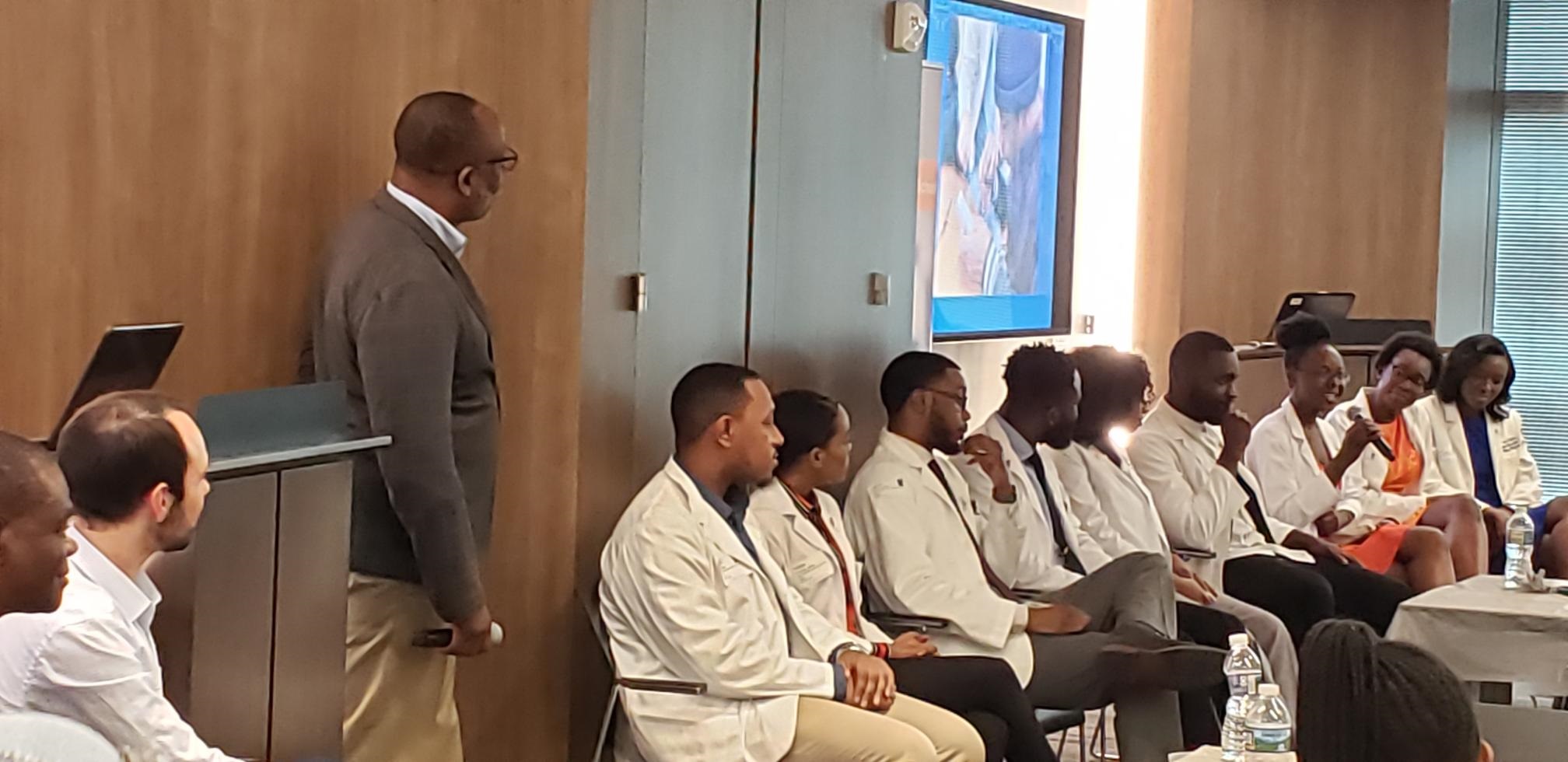Health Equity

News, Statements, and Testimony on Health Equity Issues
25th Council session information coming soon.
Will AI Replaces Physicians? MSDC Panel Says Maybe
On March 7, DC area physicians gathered at the Washington Golf and Country Club to hear from a variety of perspectives on how AI can assist with practice management.
The meeting, co-hosted by the Arlington County Medical Society and the Medical Society of DC, focused on the transformative potential of AI in healthcare. Some of the key takeaways included AI's role in improving patient care, reducing administrative burdens, and enhancing diagnostic accuracy.
The panel was moderated by Dr. Nicole Singh and Dr. Jacqueline Watson. Panelists included Dr. Anjali Malik, Dr. Marwah Tareen, Frank Meyers of FSMB, and Ajay Gupta of HSR Health.
Dr. Nicole Singh highlighted the shift from paper to electronic health records and the increasing use of AI to streamline tasks. Dr. Malik discussed AI's impact on patient access and care, while Dr. Tareen emphasized AI's benefits in reducing burnout and improving physician-patient interactions. Mr. Meyers addressed ethical and legal implications, noting the need for clinician responsibility and transparency. Mr. Gupta underscored the lack of current AI safety measures.
The panel emphasized also AI's role as a data point, not a replacement for human judgment. They discussed the potential for AI to address health disparities and social determinants of health, the importance of clinician training, and the cost-effectiveness of AI tools like AI scribes. Concerns were raised about AI's future impact on healthcare jobs and the need for continued study and regulation. An example used was what would happen when a chief of a department would leave - to quickly fill the gap could a physician be promoted and AI fill their position temporarily?
It was then the audience's turn. AI's role in surgeries and other medical tasks was debated, with concerns about replacing human touch. The panelists agreed that while AI will handle repetitive tasks, human interaction remains crucial. They emphasized the importance of medical education evolving to incorporate AI while maintaining hands-on training. Concerns about AI bias and patient data privacy were raised, with a call for equitable clinical trials. The overall consensus was that AI will enhance efficiency but should complement, not replace, human expertise.
*Notes composed by Otter AI and edited by a human
Sample of Health Equity Legislation MSDC Tracked
What does it say? The bill allows for the administration of medicinal marijuana in schools as well as allows students to bring sunscreen to schools and apply it without a prescription.
MSDC position: MSDC supports the language permitting sunscreen application in schools
Current status: A win for DC physicians and public health! The legislation passed the Council in February and was signed by the Mayor. Previous temporary and emergency legislation permitted students to use sunscreen at schools this school year already.
What does it say? The bill requires DC Health to establish an electronic Medical Order for Scope of Treatment registry (eMOST).
MSDC position: MSDC supports this legislation to more easily allow patients to make their treatment orders known.
Current status: A win for the physician community and our patients! The Council passed the bill in December and the Mayor signed it into law on January 16, 2020.
What does it say? The bill would implement a 1.5 cent per ounce tax on the distribution of "sugary" beverages. The money collected from the tax would establish a Healthy People, Healthy Places Open Spaces Grant Program.
MSDC position: MSDC sent a letter to Council Chair Mendelson asking for a hearing to discuss all of the issues around a beverage tax.
Current status: The bill was introduced October 8, 2019 and referred to the Committee on Business and Economic Development and the Committee of the Whole.

Leave a comment